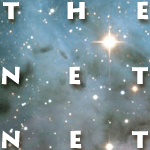RICHARD SEED SAYS YES. A physicist with a longstanding interest
in human fertility, Seed says he and a (yet unnamed) team
of physicians and scientists will be ready to start working on these
new babies in a scant 90 days. He doesn't have the money to start a
clinic, and he doesn't have any institutional affilition, and by some
reports, he doesn't have any couples waiting for his "product" (by
other reports, he has as many as 4 specific couples interested), but
he's raising money, and in a recent press conference he also stated
that profit from the baby-cloning biz would be "desirable".
Richard Seed isn't getting a lot of attention, beyond reporting on
his initial announcement and his follow-up press conference, but the
issue of human cloning has been particularly visible since the
Roslin Institute, in Scotland, reported in February 1997 that
researchers there had cloned an adult sheep to produce "Dolly". Since
then, Congress has been working on a legislative ban on human
cloning research, and there is a five-year moratorium on such
research already in place.
Animal cloning -- and genetic manipulation of cloned animals --
does raise some troubling issues. The Roslin group has created sheep
that secrete human proteins in their milk, and some have gone so far
as to say that one day "all" pharmaceuticals will be produced this
way -- in "earth-friendly, small bioreactors" such as farm animals.
Others have, of course, stepped forward to criticize this new level
of "commoditization" of animals. A complex debate that touches on
many things, including how we get our food, the animal-cloning
controversy has been overshadowed by concerns about human
cloning.
Seed claims that cloning is the best opportunity for some infertile
couples, but human cloning raises some particularly troubling
issues. For example, there is a very real possibility that some
humans might want copies of themselves for "spare parts", and it
opens the debate on the genetic manipulation of "designer babies".
Others keep the human-cloning debate close to fertility issues,
saying no one has a right to dictate how an individual chooses to
become a parent. And many object to cloning on the
basis that the essential uniqueness of each human being is a crucial
trait to preserve.
What do you think of cloning humans?
Tell The Net Net!
Read responses from the January 26th issue.
Resources
Chicago Tribune story about Richard Seed with links about Dolly and information
about
cloning
Roslin Institute, where
Dolly was created
Scientific American
article, Start of Something Big?, reporting on Dolly the Sheep and
discussing the plans of another group claiming to plan to found a clinic to
clone humans
Address from Pope John Paul II on the responsibilities of physicians to
people,
including comments about "genetic manipulation".
GATTACA, the motion picture
The Net Net review of
The Rhetoric of Eugenics in Anglo-American Thought
Links
About Eugenics: Some History and Some Opinion



